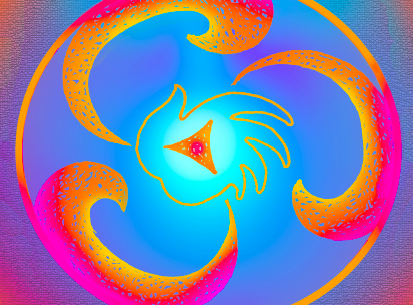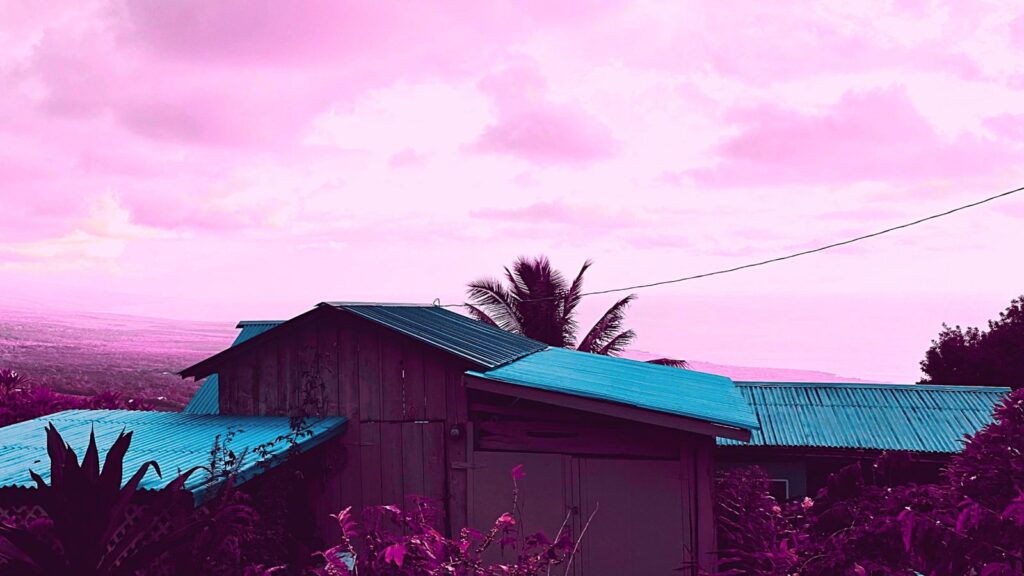The following is excerpted from I Dare You To Be Great by Polly Higgins, published by Clink Street Publishing.
What are the tools we can call in to assist with the patterns of harm we see playing out globally? You might think that existing tools are not enough to prevent and disrupt our existing norms. What do we have? We have over 500 treaties, conventions, protocols and resolutions specifically pertaining to the environment – yet none of them is supported by an enforcement mechanism. There is missing law.
Where there is no enforceability provision in a criminal court of law, there is no accountability. More than that, the state has no legal duty of care to act on behalf of its people. Without the support of new law, we remain disempowered and hidebound by old laws that no longer work.
It’s not just one tool that is required. In fact, what is emerging is a whole new body of law called Earth law. Lawyers and non-lawyers across the world are connecting and advancing Earth Rights, Ecocide law, Community Charters and applying Natural law principles to how we govern our lives. The same principles are being voiced in other spheres and there is cross-pollination. Lawyers and non-lawyers are meeting to explore how best to take forward new tools. Ecocide law sits at the heart of the body Earth law; its heartbeat is a new beat, one that beats strong. And, one that is growing stronger every day, each time as someone picks up this book.
Ecocide has three iterations: ecological, cultural and personal. The draft law of Ecocide is for ecological Ecocide and cultural Ecocide – prohibiting significant harm at a collective level. Identifying our inner Ecocides gives us the choice as to how we individually choose to self-govern. How we govern ourselves is just as valuable to society as a whole, as are the laws we put in place to govern the decision-making of those in a position of ‘superior responsibility’ – CEOs, directors, Ministers of State, financiers – and hold to account ourselves within society as a whole.
Tool: Law of Ecocide
Ecocide is ‘extensive damage, destruction to or loss of ecosystems’. When we care for the Earth it makes no sense to commit Ecocide; ultimately we all suffer, both human and non-human beings.
Most commonly understood as Ecocide is ecological harm – often it is visible, such as the destruction of the Amazon. Cultural Ecocide refers to the damage, destruction to or loss of a community’s way of life – both Ecocides are premised on a wider expansion of concern for the Earth community and our relationship with all beings. The common thread when an Ecocide occurs is the lack of care; whether it be an action or omission that is caused with intent, recklessly or without knowledge – what is known as the mens rea (the state of mind) is irrelevant. It is the consequences that occur, or could occur, that are prohibited. Why is this so? Because most Ecocides are not deliberate. Most CEOs do not wilfully decide to destroy; profit is the driver. Where there is intent, it counts as an aggravating feature.
The occurrence of Ecocide – the absence of care and the causing of significant harm of our Earth community – is dependent upon the creation of law that names Ecocide as a crime, as opposed to a mere civil breach. There is a difference; civil laws seek to give remedy for a harm (by way of pay-out) whereas criminal law seeks to break the pattern of harm by prohibiting it. Civil law does not necessarily remedy the wrong caused at source (the company can continue as usual), whereas criminal law can (a person is held to account in a criminal court of law). The power of criminal law is the power to prohibit, prevent and pre-empt certain acts that are no longer acceptable.
Tool: Creating A Legal Duty of Care
In legal terms, business as it is set up today has through the use of ownership laws sidestepped an overriding legal duty of care. Instead, the number one duty has been to put the interests of the shareholders first. Thus, demand for profit takes precedence over considerations for health and well- being of human and non-human interests. The consequences of there being no international laws to stop companies from putting profit over people and planet, are enormous. In addition to human caused Ecocide, the increase of catastrophic events highlight the lack of a fiduciary duty of care not only in business but also in politics.
There is a world of a difference in law between an owner of a property and a trustee. Put simply, an owner can destroy or cause harm to his property without being held to account. A trustee, however, holds in trust – often land – that which he or she has been entrusted to take care of on behalf of beneficiaries for both current and future generations. A trustee must by law put the interests of the beneficiaries first. When the beneficiaries do not benefit, then the trustee has failed in his or her fiduciary duty and can be held to account. Should a trustee destroy what is the life-form of the trust (e.g. the land), thereby bringing to an end the benefit, that trustee has in law failed in his duty of care. A business owner, however, can destroy the life-form of the contract (e.g. the land) and thereby bring to an end the benefit, yet where there is no legal duty of care, little can be done.
Trusteeship is very different from ownership; it carries with it a duty of care for the health and well-being of the given community, not just for the here and now, but also for the future. Whereas corporations who have contracts assigning land to them to use have an explicit duty to put the interests of their shareholders first, which means – for most – to put profit over and above any other interests. How does this work? The legal relationship determines the outcome. As an owner you have very little responsibility to that which you own and even less to any others; as a trustee, however, you have a legal duty of care, often to others you may not even meet in your lifetime.
In business, ownership prevails. And so, where a company has contractual rights over a territory and destroys it as a result of pursuit of profit (such as for fossil fuel energy), there are virtually no rules in place to stop the damage, destruction to or loss of ecosystems. At an international level at the moment, it is not a crime during peace time to destroy vast tracts of land – and yet, during war time it can be a crime.
Compare this with community land projects which are set up on trusteeship rules. Unlike business, which is driven by the legal requirement to put the interests of shareholders first (which means in most cases to make profit), community land projects have a legal duty of care, which means that health and well-being principles take supremacy. So, in legal terms, broadly we run business on ownership rules rather than trusteeship rules, which in turn leads to lack of duty of care for the community affected and a lack of taking responsibility for current and future adverse consequences. Moreover, business – like politics – are run on short-term returns, thereby mitigating against planning longer term. Neither politics nor business has an overarching legal duty of care to put the interests of the wider Earth community first before profit. Thus, communities across the world every day suffer significant harm for want of fast-gained financial returns.
Very different laws, as you can see, exist for business. Business is not governed first and foremost by a legal duty of care for the wider Earth community. By the wider Earth community I include not only humans but also all who live and are inhabitants of our Earth.
Earth Trustee Key: Stepping into our greatness takes us up a gear. It’s a step onwards from care for the self to care of the wider Earth community; a relationship – our relationship – with the world expands. Our cycle of compassion has extended and now our duty of care has become all encompassing. To be an Earth Trustee is to ensure the health and well-being for future generations. What does that mean to you? See if the following statements resonate for you and, if not, explore what does: being my purpose, caring for both people and planet, trusting my innate. Then have a look at the bigger picture – global harmony. What does that mean to you? See if the following statements resonate for you and, if not, explore what does: Earth law, human responsibilities, rights of future generations, peace.
There is great power that can be harnessed through the pursuit of greatness. I talk here of the power to effect greatness within our lives that contributes to a greater world, a world where we are Ecocide-free, free from cultural, ecological and our inner Ecocides. Power brings with it the responsibility to use, not abuse, for the greatest good. By taking responsibility for the most powerful state of being, we cultivate the most powerful state of doing.
When we dare to be great, when we ask “What is my legacy to be?”, when we look 2,000 years hence, our vision of what is possible expands. We shift our sense of what’s possible and we step outside of ourselves for just a moment in time to explore a far bigger picture. What that picture looks like is borne of our pre-conceptions of what is possible and what is not. By parking our preconceptions for even just a moment to allow ourselves the space to explore without restriction, our vision can be truly big – unfettered by the inner critic that says “That’s not possible”.
Creating enabling frameworks, be it through the creation of law or the setting of intent (for creation of law is one form of setting of intent made manifest) is an essential aspect of how we move forward. What are the enabling conditions each and every one of us requires to flourish? Put a group of people in a camp surrounded by barbed wire and withdraw their right to their land and you will find that those people very soon begin to suffer. The community can no longer live in greater freedom and as a result begins to break down. The same thing happens when we surround ourselves with barriers that prevent our freedom to think big – the voice that says “You have no right, who are you to speak?” These are barbed words indeed and in accepting them we no longer allow our being to be free, in greater expansion in thought and action. We become imprisoned in our own smallness.
Just as in law we have Enabling Acts – acts of law that cut through the chains that hold progress back – so too is it sometimes necessary to break with convention so that a greater freedom can operate. We too have our own enabling actions, or practices, that empower us to move forward. More than that: when we break our own chains that bind our mind, we create a greater freedom not only for ourselves but also for others around us. When we shift our own terms of agreement, those who do not agree tend to move away, creating more space for others to radiate in who are aligned with our new state of being. In turn, our world begins to operate on a different level; one where we choose what happens next. Our world begins to constellate events and circumstances that meet our intent. Now all that is required is for us to take action.
The Sacred Trust Of Civilization
There is in law an ancient tenet that dates back in writings to the 16th Century. Oft overlooked, it nonetheless is encoded in the first charter for the United Nations. The original wording makes explicit our overriding duty of care to all beings – not just human beings. It is the language of trusteeship law. By 1945 the wording had been narrowed down to a limited remit, applying only to territories that were officially designated to be former colonies now named Non-Self-Governing Territories (NSGTs). Nevertheless, the principle here, of putting first the well-being of all beings, remains.
Set out in Article 73 of the United Nations Charter:
‘Members of the United Nations which have or assume responsibilities for the administration of territories whose peoples have not yet attained a full measure of self- government recognise the principle that the interests of the inhabitants of these territories are paramount, and accept as a sacred trust the obligation to promote to the utmost, within the system of international peace and security established by the present Charter, the well-being of the inhabitants of these territories…’
In law, a trustee’s duties are based on the equitable notion of conscience and conscionable conduct. Prioritising of personal, professional and business interests are improper; what comes first are the duties of service to ensure the well- being of all beneficiaries. The trustee therefore, must act on behalf of the interests of the beneficiary, not for its own interest. Therefore, for the purposes of the sacred trust of civilisation, it is us who are the trustees who are bestowed with the position of responsibility, who have what is termed a ‘fiduciary duty’, to the beneficiaries of the trust asset. The asset to be administered by the trustees is the territory, and the beneficiaries are the inhabitants.
Thus, a sacred trust is both a state of being and of doing, which when adhered to prevents the abrogation of the universal value of the sacredness of life. The very use of the word ‘sacred’ underlines the importance such a trust is accorded, reinforcing the moral as well as the legal obligation it imposes on all.
A sacred trust is premised on two values: the sacredness of life and our interconnectedness. I believe we can bring the sacred trust to the fore by placing it firmly at the centre of our world. Written law is one thing, what we adhere to within ourselves is another. Can we put at the heart of all we do a sacred trust? I believe we can. When we value life itself, something fundamental shifts within. Our ability to embrace a world of peace is suddenly attainable.
Article 73 of the UN Charter has wider implications for how we engage with civilization as a whole; a sacred trust need not only be for the few – at the heart of it lies the belief in the supremacy of a duty of care that applies to everyone. Each of us counts; and how we choose to action a duty of care for humanity and the Earth is up to us.
Holding To Account
Holding to account sets in place something that acts as a check and balance. To be counted is to matter, to be valued. Account-ability is the ability to be included, to be answerable. The notion of answering for our actions arises from the origins of the word accountability – ‘answering for money held in trust’. The basic premise is a trusting one and where the trust is broken, we are held to account for our actions.
Decide to commit Ecocide at a collective level, and you are held to account in a court of law. To simply overlook a harm is to remain complicit; however, to hold to account is to stand fully in our belief that we all count and the actions that cause harm, or the lack of action to prevent a harm, are no longer lawful.
Criminal law flips the burden of proof. But it goes further than that; by creating a law of Ecocide no longer is it acceptable to say that Ecocide is needed (for profit, jobs etc.). It is not a defence to say a harm is a good harm. In the eyes of criminal law, what is determined is whether a harm is occurring. When evidence is brought to the court, it matters not that it is justified on economic reasons; what matters is whether the harm is so significant as to amount to an Ecocide. Fines are not applicable to international criminal law (remember it is individuals who are held to account first and foremost, not the company or corporation). By way of analogy, take the example of a CEO of a publishing business running the defence against pornography and trafficking charges, that he should not be convicted because many people’s jobs depend on it. His counsel would advise his client he has no defence in law. Apply this same situation to a CEO of a company running the defence against Ecocide charges – likewise his counsel would advise the same.
Criminal law in effect changes the story of our times. No longer do we buy-in to the justification of Ecocide as a valid harm. Instead, we choose a greater story – one free from harm.
The Bigger Picture: Claim, Name and Frame
How we claim the space and frame the narrative shapes the outcome. Often when it comes to contested issues, it becomes a war-like zone: does peak oil exist? Is fracking safe? Is GM harmless? Depending on whether you listen to the companies with a vested interest and much money to pay PR companies and commission reports that back their claims or whether you choose to undertake some due diligence yourself, either way you may end up completely confused.
Who to listen to? Well, maybe you do not need to be an expert to determine where you personally stand. Ask yourself: is this for the best? Is it for the best to continue drilling for oil with ever more adverse consequences? Is it for the best to drill underground and pump down vast quantities of chemicals underground? Is it for the best to modify genes?
There is a common thread here: does x cause harm? If so, it makes sense to stop. You need not be an expert to determine whether a significant harm has occurred. Just look at images of Ecocides across the world, such as the Athabasca Tar Sands, mountain-top removal, deforestation of the Amazon – the harm is visible to the human eye in these instances. It is a crime to harm a human, but when it comes to our Earth, we have yet to put such crimes in place. Which means that abuses on a major scale have become accepted as our norm. Just as slavery was accepted as a norm because it was not a crime for a long time, so too is Ecocide.
But also like slavery, public disapproval is escalating; communities adversely impacted by their Ecocide are speaking out. People across the world are becoming increasingly pro-active to show their support, and where local communities are not being heard, their stories are being shared across social media in real-time. It becomes harder and harder to hide. Individuals are taking it upon themselves to connect into an alternative media that portrays a very different story; proper reportage, rather than repeat-age. Choosing to discern our news feeds, rather than accepting the norm, is in itself an opening into a whole new story. Often the new story reports directly counter what the mass media says. Which takes us back to our starting point: does x cause harm? And if so, is it a significant harm?
A law of Ecocide sets out parameters of size, duration or impact. They are guidelines only, as every Ecocide is unique. Just as we do not have checklists to determine whether a human has suffered grievous bodily harm (GBH) or actual bodily harm (ABH), there are some cases that are clear cut and others that fall into the grey area. Case law builds and is used to help a court determine whether the harm is so significant to be a GBH or the lesser harm of ABH.
We do not as of yet have an international crime of Ecocide – whether or not we choose Ecocide law is up to we the people. Do we choose to end the era of Ecocide?
To stand up to what seems an enormous weight of force that keeps an existing system in place seems to be a great challenge. Which is why I believe it shall take greatness to put in place Ecocide law, and if we are to call on our political leaders to be great, then surely it becomes our duty to be great too. Those leaders with a strong moral compass have already seeded in them the kernel of greatness. As do each of you reading this book. So, let’s lead by example – name our Ecocides.
This is our land. It’s up to us what happens next. How we choose to claim the space is up to us. View the Earth as a thing and it simply becomes a commodity that can be bought and sold without care for the consequences. But view the Earth as a living being and we embrace its intrinsic value, not the imposed value – the very sacredness of life. Instead of ‘I own’ we shift to ‘we owe a duty of care’. It becomes a collective responsibility, not just for here and now, but for the lives of future generations too. Care replaces commodity. Costing nature tells us that it possesses no inherent value; that it is worthy of protection only when it performs services for us; that it is replaceable. In one fell swoop, we demoralise and alienate those who love the natural world while reinforcing the values of those who don’t. We remain stuck in the cycle of harm.
Claim the space. Not as an owner of your patch of the Earth, but as something far greater instead: as a trustee, a guardian, a steward. Instead of Ecocide (harming of our home), let’s put in place a duty of care.
Give it name. Harm with no name remains hidden. Often law plays catch-up with where civilization is; it took the aftermath of World War II for Genocide to be given name; this time round it has taken much more for us to get to that point where we say – this is Ecocide.
Frame the narrative. How we choose to call in support for Ecocide law is important. We can be raging bitter, fighting against – or we can come from a place of deep care, seeking restorative justice and a better way of preventing future harm. Ours can be a vision of a world where we have ended the era of Ecocide – a world where we harness the power of the sun, water and air to provide the alternative to unconventional fossil fuel, a world where we no longer cause significant harm to the Earth, culturally and ecologically. A world where we are protectors (not protesters), speaking from a place of care and upholding a system of decision-making where a ‘first do no harm’ principle comes first.
By framing the narrative in terms of a better world that adopts a law of Ecocide, investors shift their perspective: mining and extraction of oil becomes a risky venture – looming laws that will prohibit dangerous industrial activity, such as mining operations/pipeline proposals/deep sea drilling, mean that what was previously the norm is no longer viewed as a secure financial investment or trading commodity. Long-term investment signals flip: with Ecocide law, it no longer makes sense to put money into what is soon to become an illegal activity.
This is our legacy. What we choose to do next opens up a space for something greater to emerge. It’s up to us – together we can claim, name and frame.














